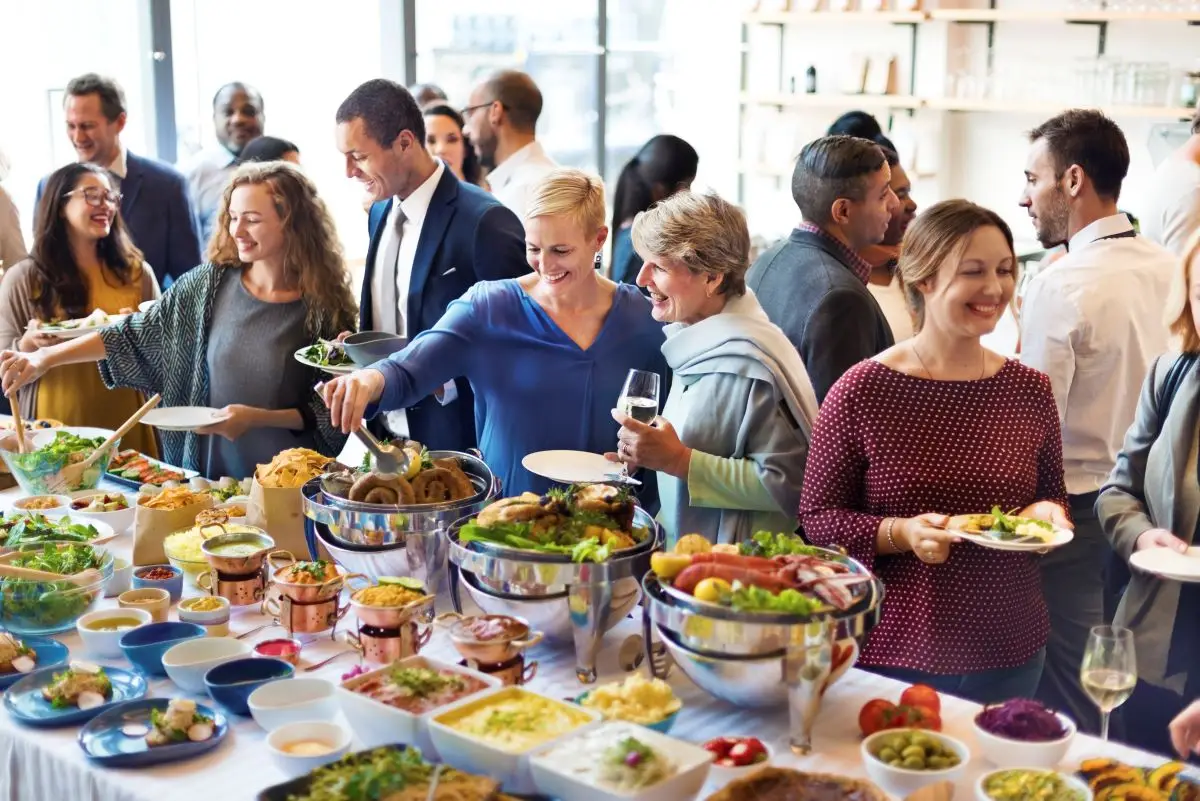How to plan a more inclusive event

Planning an event and want to know how to make it a more inclusive event? This post covers some simple tips to consider when planning an inclusive event.
Why are Inclusive events important?
Events are a great way to bring people together. Whether you’re planning a corporate conference, a public event, or a private celebration, events can be a powerful way of connecting people. They can provide shared experiences, strengthen relationships and create memorable moments.
However, to produce an event that all your attendees will enjoy, it is so important to take a moment to think about your guests and their needs. There are a variety of factors you should consider such as varying personality types, neuro-diverse attendees, attendees with disabilities, and cultural differences, to name just a few.
Though this list is not exhaustive, here are some ways in which you can create a more inclusive event:
1. Have a separate ‘quiet room’
Having a dedicated ‘quiet’ space is a simple way to provide an area where guests can take a moment to recharge and get some head space. A quiet space also creates a more inclusive environment for those who are on the autism spectrum or who have high sensory sensitivity. The space should be inviting and comfortable, with cosy chairs, relaxing scents, plants and refreshments. Make sure that the quiet space is well signposted so that all guests know where to find it. Also, include it in all pre-event attendee communications. This will reassure some guests that there is a safe space they can retreat to if they find it all a bit too much.
2. Create ‘calm corners’
If it is not possible to have a separate quiet room in your venue, then creating several ‘calm corners’ is a good alternative. If you have a particularly large venue, having pockets of seating areas which are slightly tucked away from the high-traffic areas is a great way to add additional calming zones. These calm corners are perfect for more intimate 1-1 conversations. They are also helpful for event attendees who find it difficult to hear clearly in busy environments.
For inspiration on creating your own quiet space or ‘calm corner’, read my post here for some simple tips.
3. Ensure venue accessibility for those with mobility disabilities
This sounds obvious, but occasionally I have visited events where the breakout rooms are located across three different floors, without a lift in close proximity. This creates a negative experience for those attendees who have mobility challenges and makes them feel as though their needs have not be taken into consideration.
When conducting your venue search, make sure that your venue accommodates people with physical disabilities. Look for ramps, elevators, wide doorways, accessible bathrooms, and designated parking spaces. Make sure the event space is easy to navigate for those using wheelchairs or mobility devices, for example, having wide enough spaces in between tables. You also need to consider your furniture, for example not only using high poseur tables, but also using low tables in the coffee spaces.
If you need some help with your venue search, get in touch and let’s chat about your brief.
4. Consider attendees with hearing disabilities
There are several ways you can support your event attendees who are deaf or have hearing difficulties. For example, providing sign language interpreters for your keynote sessions. You could also offer hearing loops or close captioning on screens or via an app.
5. Consider attendees with visual impairments
For attendees who are blind and visually impaired, you might want to provide screen readers for any reading materials or slides. You should also consider any printed materials, offering large-text or Braille versions.
6. Provide a private nursing room and/or creche
For new mothers attending an event, having a private safe space they can use as and when needed is a great way to ensure that everyone feels comfortable throughout the day. And to go that bit further, you could consider offering an on-site creche for parents who may be struggling with child care but still want to attend the event. If you decide to provide a nursing room or creche at your event, make sure that it is well communicated in your pre-event marketing and invitations. Knowing that these facilities exist may encourage people to attend who otherwise may not have done.
7. Have an onsite prayer room
Providing a private, quiet room for attendees to use to pray shows that you have considered, and are respectful of the different cultures of your attendees. Be sure to include the details of this in all pre-event communications and add event signage throughout the venue.
8. Diversity in your speakers or entertainers
Your attendees are likely diverse in their cultures, genders, background, personalities and interests. So it is only right that your speakers should reflect your audience. Try to build an event agenda which includes speakers who have differing backgrounds, thoughts and opinions. The same goes for any entertainment you might hire. Make sure that music is culturally appropriate for your audience, and any comedy acts are not too political or cover content which might be offensive to some people.
9. Inclusivity in your catering
Catering for dietary requirements is a very basic requirement for any event, yet often, it is executed poorly. You should be catering to all dietary requirements, whether this is vegan, gluten-free, vegetarian, halal, or any other more specific dietary requirement. If you are having a buffet, make sure that all dishes are clearly labelled with all allergens. If you are providing a seated meal, make sure that your caterers know which tables the guest with dietaries are sat on.
It is also good practice to contact any guest who has a very specific requirement, such as an allergy or Kosher request to make sure that you fully understand their requirement and can accommodate their needs.
When serving drinks, make sure that you have a good range of non-alcoholic drinks available. There are so many great non-alcoholic drink options available now, there really is no excuse for only offering boring coke or orange juice to your guests instead of beer or wine – or even worse – just water! If your venue is not able to offer interesting non-alcoholic options, speak to them about providing your own and paying corkage.
Another thing to consider when selecting the catering for your event is the cultural diversities of your attendees, to make sure that there is a variety of options to choose from.

Why are inclusive events important?
Creating an inclusive event creates an environment where your guests can feel comfortable and welcomed. It provides a safe space which celebrates differences and shows your attendees that you care. Promoting these inclusive offerings can also boost attendance and interest in your event, as it can open doors to a wider audience.
All in all, being considerate of your attendees and your employees working at the event can contribute to the overall engagement and success of your event.

If you’re looking for help planning your next corporate event or private party, get in touch!



